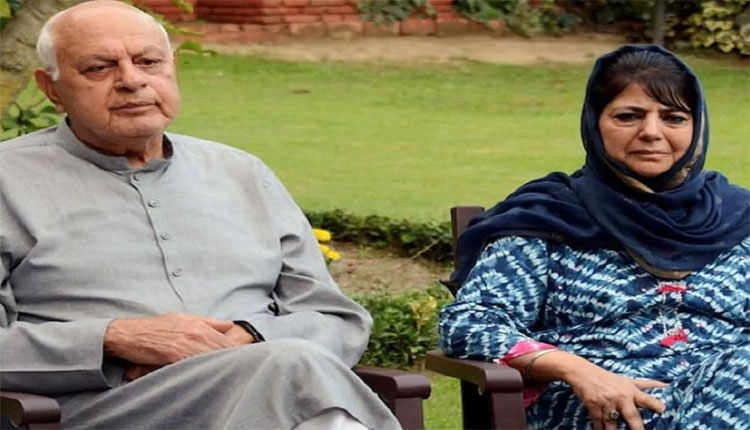Srinagar: As political tensions rise in Kashmir, the Shia community—constituting approximately 20-25% of the region’s Muslim population—finds itself in the spotlight. With a population ranging from 13 to 15 lakhs, the Shia community has a significant presence, particularly in the central districts of Budgam and Srinagar. As elections approach, the community’s leaders are poised to play a decisive role in the region’s political landscape.
The Shia community in Kashmir is mainly divided into two major factions: the Mustafai and the Mohammadi, with two smaller groups known as Maulvi Sahabi and Abbasi. The Mustafai faction is led by Aga Syed Mustafa’s family, while the Mohammadi faction is spearheaded by Aga Syed Yusuf’s descendants. The political journey of these factions has been shaped by history, legacy, and a unique relationship with the region’s governance.
Aga Syed Mustafa’s family has long been influential in the Mustafai faction. His son, Agha Ruhullah, rose to prominence after the assassination of his father, Agha Syed Mehdi, in a bomb blast. This tragic incident led then-Chief Minister Farooq Abdullah to induct him into the National Conference (NC), where he has remained a key player. His younger brother, Agha Syed Hasan, once walked the path of separatism but has since re-entered mainstream politics. Meanwhile, another brother, Agha Syed Mohsin, maintains a distance from politics, although he occasionally supports Ruhullah. The youngest sibling, Agha Syed Ahmed Mustafa, recently joined the Awami National Conference.
The Mohammadi faction is primarily associated with Aga Syed Yusuf’s lineage, with his son Agha Mahmood being a prominent figure in politics. Although he was last active in the 2002 elections, there is speculation that the NC might field him again to secure a critical seat. However, the entry of Syed Muntazir Mehdi, a candidate for the People’s Democratic Party (PDP) from Budgam, has increased the competition. Mehdi, the son of Agha Syed Hasan, is expected to consolidate support from the Shia community.
The Maulvi Sahabi faction, once led by former PDP leader Iftikhar Ansari, now sees his sons Imran Ansari and Irfan Ansari as its political torchbearers. Irfan Ansari faced defeat in the 2019 Lok Sabha elections and subsequently distanced himself from politics. The Abbasi group, led by the late separatist leader Abbas Ansari, remains outside electoral politics. His son, Masroor Abbas Ansari, is currently active in the Majlis-e-Mutahida Ulema Council.
In a unique cultural practice, many members of the Shia community in Kashmir traditionally turn to their religious leaders rather than government courts for legal matters. This practice saw its peak during the time of Aga Syed Yusuf when even district courts referred cases to his Shari’ah court. The community’s influence also reached a symbolic level during the reigns of Maharaja Gulab Singh, Pratap Singh, and Hari Singh, when a unique constitutional article granted the Aga family the privilege of having court testimonies recorded at their residence, rather than appearing in court.
As the upcoming elections draw near, political analysts suggest that the Shia community might unite to rally behind Syed Muntazir Mehdi, just as they did for Agha Ruhullah in the recent Lok Sabha elections. This potential unity could influence the NC’s decision to field a leader like Agha Mahmood to retain its foothold in key constituencies like Budgam and Beerwah.
With various Shia leaders preparing to enter the electoral fray, the political landscape in Kashmir is set for an intriguing contest. All eyes are now on how the community’s vote will shape the region’s future.



Comments are closed.